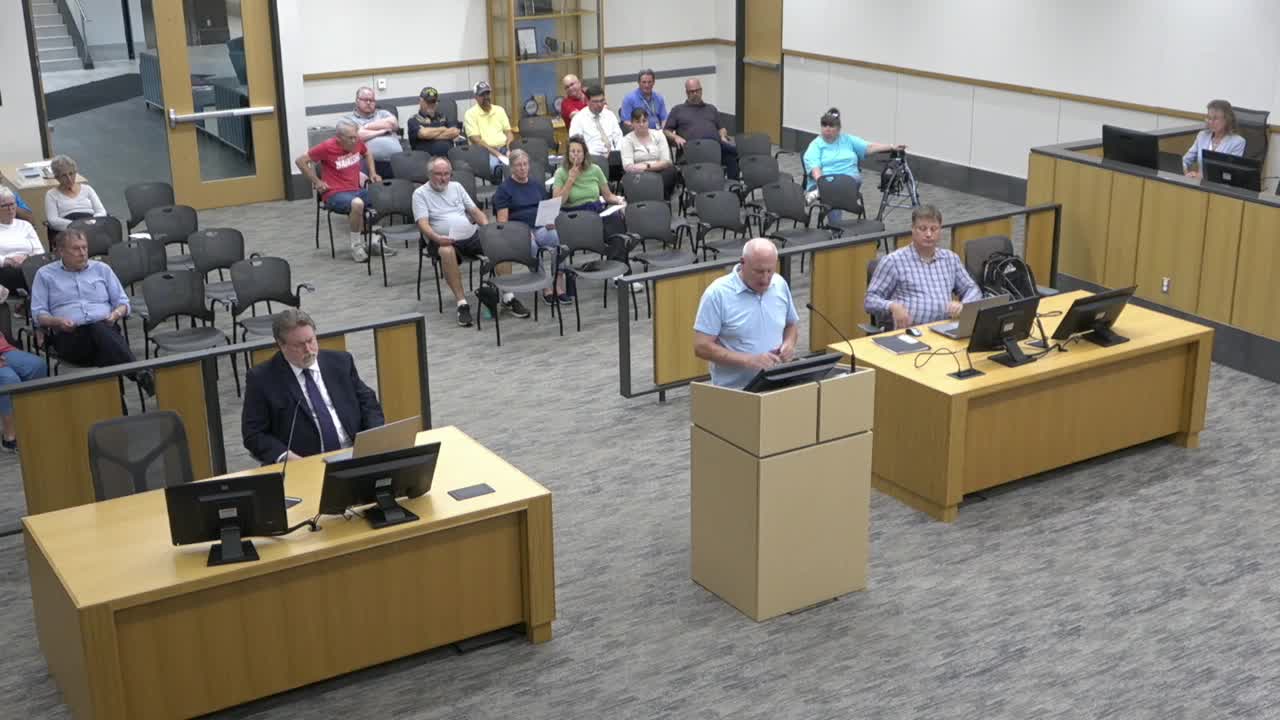Waukesha City Council Discusses $160 Garbage Fee and Financial Projections
September 30, 2025 | Waukesha City, Waukesha County, Wisconsin
This article was created by AI summarizing key points discussed. AI makes mistakes, so for full details and context, please refer to the video of the full meeting. Please report any errors so we can fix them. Report an error »

Residents of Waukesha are facing potential changes to their waste management fees, as the Finance Committee discussed a proposed $160 annual charge per household during a recent meeting. With approximately 30,000 households in the city, this fee could generate nearly $4.8 million for waste services. However, concerns were raised about the fairness and transparency of this fee structure.
Community members voiced their apprehensions regarding the new fee, questioning whether homeowners would have the option to opt out and if there would be additional charges for large item pickups. One resident, expressing skepticism about the potential for tax reductions, highlighted the rising costs of services and equipment, suggesting that this fee might be perceived as an additional tax burden.
Another resident emphasized the need for fairness in the fee structure, particularly for single-family homes that generate less waste compared to multi-family properties. This sentiment echoed a broader concern about how the proposed fee aligns with the state’s funding trends for municipalities, which increasingly favor a "pay as you throw" model.
The committee also reviewed the city’s financial projections for 2025 to 2029, with Finance Director Joe Sherrill presenting an update on the operating financial outlook. This discussion is crucial as the city prepares for its upcoming budget process, aiming to balance revenues and expenses effectively.
As Waukesha navigates these financial discussions, the implications of the proposed waste management fee and the overall budget strategy will be closely watched by residents, who seek clarity and fairness in how these changes will impact their community. The committee plans to revisit these topics in future meetings, ensuring ongoing dialogue with the public.
Community members voiced their apprehensions regarding the new fee, questioning whether homeowners would have the option to opt out and if there would be additional charges for large item pickups. One resident, expressing skepticism about the potential for tax reductions, highlighted the rising costs of services and equipment, suggesting that this fee might be perceived as an additional tax burden.
Another resident emphasized the need for fairness in the fee structure, particularly for single-family homes that generate less waste compared to multi-family properties. This sentiment echoed a broader concern about how the proposed fee aligns with the state’s funding trends for municipalities, which increasingly favor a "pay as you throw" model.
The committee also reviewed the city’s financial projections for 2025 to 2029, with Finance Director Joe Sherrill presenting an update on the operating financial outlook. This discussion is crucial as the city prepares for its upcoming budget process, aiming to balance revenues and expenses effectively.
As Waukesha navigates these financial discussions, the implications of the proposed waste management fee and the overall budget strategy will be closely watched by residents, who seek clarity and fairness in how these changes will impact their community. The committee plans to revisit these topics in future meetings, ensuring ongoing dialogue with the public.
View full meeting
This article is based on a recent meeting—watch the full video and explore the complete transcript for deeper insights into the discussion.
View full meeting
